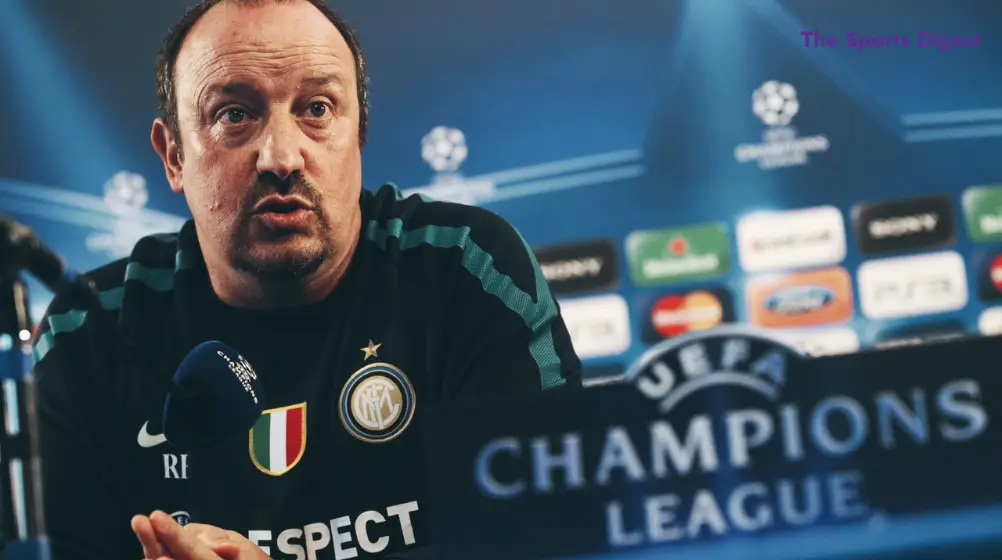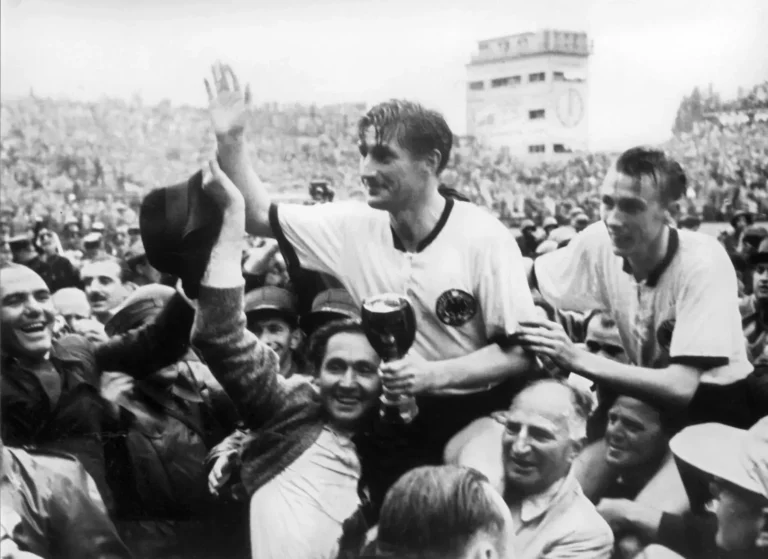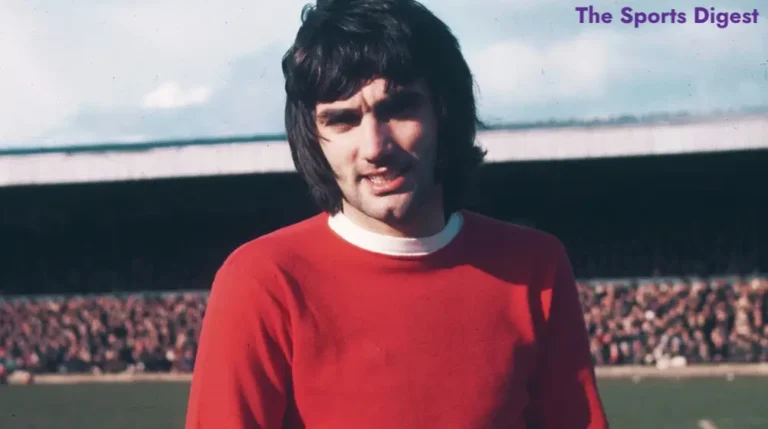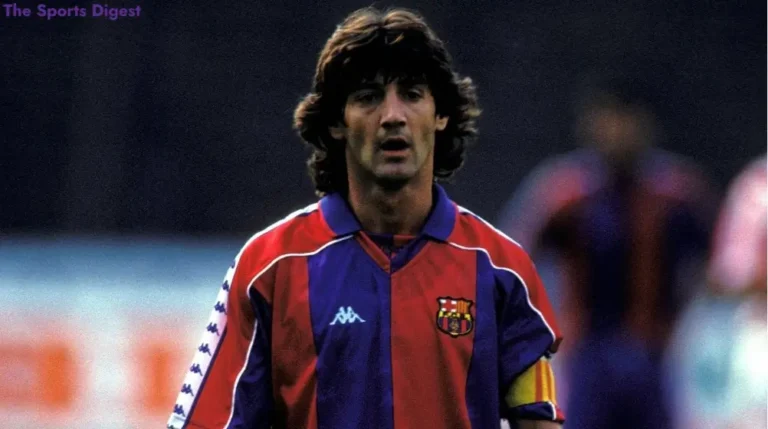Rafael Benítez: Six Months in Mourinho’s Shadow
When Rafael Benítez arrived at Internazionale in the summer of 2010, he stepped into what many considered a dream job. The Spanish tactician was taking over a team that had just completed an historic treble under José Mourinho, winning Serie A, the Coppa Italia, and the UEFA Champions League. With six potential trophies on offer in the 2010/11 season, the opportunity seemed, in Benítez’s own words, “irresistible.”
Just one week after his departure from Liverpool, Rafael Benítez found himself in charge of the European champions. On paper, it looked like a perfect match—his pragmatic approach to football seemed well-suited to the tactical nature of Italian football. However, what followed was a six-month tenure that would become one of the most troubled chapters in Benítez’s otherwise distinguished career.
Table of Contents
The Lingering Ghost of Mourinho
From the outset, Rafael Benítez faced an enormous challenge that extended beyond the tactical board—the shadow of José Mourinho. The Portuguese manager had left for Real Madrid in a blaze of glory, having cemented his place in Inter’s history with unprecedented success. More importantly, he had forged unbreakable bonds with his players, inspiring a level of loyalty rarely seen in modern football.
“I didn’t want him to leave,” Wesley Sneijder, one of Inter’s star players, later admitted. The sentiment was shared throughout the squad. Marco Materazzi, a veteran defender, was even more emotional about Mourinho’s departure, highlighting the connection the Portuguese had built with his players.
This loyalty to Mourinho was compounded by the well-documented feud between the two managers. Their rivalry, which began during their time at Liverpool and Chelsea respectively, had been bitter and public. The infamous “ghost goal” scored by Liverpool’s Luis García in the 2005 Champions League semi-final against Chelsea had been a particular point of contention, with Mourinho never missing an opportunity to question its legitimacy.
A Clash of Personalities
Benítez’s unveiling at Inter was filled with optimism and ambition. He spoke of a “historic time” for the club and expressed his desire to win even more trophies than his predecessor. Some interpreted this as a direct challenge to Mourinho’s legacy, particularly given the Portuguese manager’s previous criticism of Benítez’s trophy record at Liverpool.
However, the Spaniard soon discovered that winning over the dressing room would be his greatest challenge. The contrasting management styles of the two coaches could not have been more stark. While Mourinho was known for his charismatic and emotional connection with players, Rafael Benítez was perceived as “aloof and distant,” with a more clinical approach to management.
Inter’s president Massimo Moratti noted the significant difference in their communication styles. Even at Liverpool, where Benítez had enjoyed considerable success, his relationship with captain Steven Gerrard had been described as “frosty.” Materazzi was particularly critical of Benítez’s approach, likening it to “being back at school”—a sharp contrast to the camaraderie they had experienced under Mourinho.
External Pressure and Internal Frustrations
While Benítez struggled to assert his authority at Inter, Mourinho continued to cast a long shadow from Madrid. The Portuguese manager publicly questioned Benítez’s suitability for the Inter job and criticized his time at Liverpool. More provocatively, he suggested that any trophies Benítez might win with Inter would still be “his” due to the foundations he had laid.
On the pitch, early results did little to silence the critics. Inter’s defence of their Serie A title began with unimpressive performances, drawing negative comparisons to Mourinho’s successful start the previous season. A defeat in the UEFA Super Cup further damaged Benítez’s standing.
The Spaniard’s frustration grew when his attempts to bring in his own players were thwarted. His efforts to sign Javier Mascherano and Dirk Kuyt from Liverpool, along with Manchester United’s Patrice Evra, were unsuccessful. This situation echoed Brian Clough’s ill-fated tenure at Leeds United, where he had also struggled to put his own stamp on a successful team.
Signs of dressing room discontent soon emerged. Sulley Muntari reacted angrily to being dropped for a game—a level of dissent that would have been unthinkable under Mourinho. More controversially, Materazzi claimed that Benítez had ordered the removal of photos of Mourinho from the training ground, a gesture seen as both disrespectful and a sign of insecurity (though Benítez later disputed this account).
Deteriorating Results and Mounting Pressure
As autumn turned to winter, Inter’s form deteriorated further. A series of uninspiring draws in October was followed by a dreadful November, including defeats in the Milan derby and against Chievo. With each poor result, the inevitable comparisons to Mourinho’s achievements in the corresponding fixtures the previous season intensified the pressure on Rafael Benítez.
The criticism extended beyond results. Rui Faria, who had been Mourinho’s fitness coach at Inter, publicly suggested that Benítez’s methods were responsible for player injuries and the team’s poor performance. This external criticism from Mourinho’s camp only added to the sense that Benítez was fighting a losing battle.
A Fractured Relationship with the Club Hierarchy
By December, Benítez’s relationship with President Moratti had significantly soured. His public demands for new signings were not well received, and a controversial team selection in a Champions League match against Werder Bremen proved to be a turning point.
Despite having already qualified for the knockout stages, Moratti expected Rafael Benítez to field a strong team to maintain momentum ahead of the Club World Cup. When Benítez opted for a weakened side, Moratti saw it as undermining their chances in the upcoming tournament, which he considered a priority.
Facing criticism from the former regime, player unrest, disapproval from the president, and worsening results, Benítez’s position became increasingly precarious.
The Club World Cup: A Brief Respite and Fatal Ultimatum
In December 2010, Inter traveled to the UAE for the Club World Cup. Their victory in the tournament provided a temporary reprieve for Rafael Benítez, but underlying issues remained. Dejan Stanković expressed disappointment at being benched, while Materazzi was angered by not being given a late substitution appearance in the final.
What should have been a moment of triumph for Rafael Benítez instead became the catalyst for his departure. In the post-match press conference, flush with the success of winning the Club World Cup, Benítez issued a public ultimatum to the Inter board: either provide him with full support and new signings, or he would consider leaving.
The Inevitable End
Five days after his ill-judged ultimatum, Rafael Benítez was sacked by Inter Milan. His tenure had lasted just six months—a brief and turbulent chapter in the club’s history.
President Moratti later admitted that appointing Benítez had been a “mistake,” though he acknowledged that the Spaniard had been a strong candidate after their first choice had declined. The Inter job had proved to be a “poisoned chalice” for Benítez, given the enormous shadow cast by his predecessor.
Mourinho, never one to miss an opportunity for a parting shot, later claimed that Benítez had “destroyed the best team in Europe.” Yet, in the years that followed, Rafael Benítez would rebuild his reputation with successful stints at Napoli and even at Real Madrid, proving that his managerial career was far from defined by those six difficult months in Milan.
In the end, Rafael Benítez’s time at Inter Milan serves as a cautionary tale about the challenges of following a successful predecessor, particularly one who has forged such strong emotional bonds with players and fans alike. It also highlights the importance of cultural fit and the difficulties of imposing a new vision on a team still deeply attached to its previous identity.
Have you ever read an article like this?
There are no reviews yet. Be the first one to write one.






